Warning: Illegal string offset 'source_type' in /home/mychutej/public_html/blog/wp-content/plugins/egany-facebook-to-wp/egany_facebook_to_wordpress.php on line 1099
In the battle against Ebola, we must remember that we did not wait to be told everything; we stepped up and started solving our problems.
Nigeria was declared Ebola-free on October 20th 2014. Between then and now, global strategies and interventions against Ebola has changed rapidly and the outbreak containment has been commendable; the world is looking towards that day we will pronounce an Ebola Free World. This is not to say there might not be a future occurrence of the zoonotic disease, but the last outbreak was devastating to humanity and socio-economics of affected countries. It has brought out certain weaknesses in global health system and it has to be definitively wiped out.
Some of the texts in this article were first published in October 2014, shortly after Nigeria was declared Ebola Free. However, we have chosen to bring it back because of this current environment where it seems people have returned to those practices that made it easy for Ebola to spread. The current environment is similar to where Nigeria was around March and April 2014. We heard news reports but our individual and collective readiness was weak.
As part of strengthening preparedness, we recommend these 5 things to Nigeria and other countries facing equivalent risks:
1. Prompt Reporting
The Nigerian Ebola surveillance protocol is highly dependent on information. We have over 110 million active mobile subscribers and 54 million internet subscribers and widespread distribution of public and private primary healthcare centers nationwide. That is a huge amount of potential reporters.
If we will remain Ebola-free, any suspicion of Ebola, whether by individuals or health facilities, must be immediately reported to health authorities.
The reporting channels are:
Health facility: Any health facility near you (especially government-owned)
Social Media: Twitter (@EbolaAlert), Facebook.com/EbolaAlert
Live Chat: Visit www.EbolaAlert.org
2. High Environmental and Personal Hygiene Standards
Ebola is largely a hygiene challenge, all the way from the source (fruit bats and monkey meats) to human-to-human transmission. To keep Nigeria Ebola-free, we need to sustain proper cooking of food. Ebola is not the only infectious disease contracted through badly cooked food; typhoid, hookworm infection, cholera all can be prevented when our food are properly cooked with clean hands. Proper hand hygiene is all that is necessary to prevent many deadly infections: by hand-washing, and where this is not feasible, by alcohol hand rubs (sanitizers).
Maintaining sound environmental hygiene is indeed a reflection of our personal hygiene standards too. We must ensure that our personal and public spaces, are always sanitized and frequently decontaminated. Our homes, schools, offices, eateries, cinemas, churches, mosques, hospitals, public toilets are spaces that come together to make our lives convenient and beautiful; they are also points of potential infection when not properly cared for. We must make sure they do not become problems to us. Whoever owns or is responsible for those spaces must do everything possible to ensure that appropriate materials and personnel required to achieve excellent environment hygiene are deployed to those places.
Related Article: Preparedness- The Strategy that Works Best
3. High Index of Suspicion for Ebola
We know how lucky we were that the late Patrick Sawyer was identified early at First Consultant Hospital. This is why we immortalize the late Dr Adadevoh, and why we remain grateful to the entire team at First Consultant: not only for their great sacrifice, but also for suspecting and reporting the case as early as they did.
We need our healthcare providers to retain the same, if not higher, level of suspicion. We at Ebola Alert have developed a basic web application to guide you through Ebola case definition protocol, which you can find in the resources segment of the website at EbolaAlert.org/check
A basic history is all we need to identify most Ebola suspect cases that present to health facilities. Spread of Ebola can be prevented, and chance of survival for affected persons increased when treatment commences early.
In addition, health practitioners must ensure universal standard infection prevention control. Remember that clinical care requires us to guard ourselves and our patients from infectious diseases. Clinicians can help #KeepNigeriaEbolaFree if they remain extremely vigilant.
4. Sustained Government & Political Collaboration
The Nigerian collaboration towards containing Ebola was a collective effort at all levels of government and across political interests: federal, state, local governments and MDAs. Beside the health sector, the agriculture, technology, works and education sectors played key roles.
Ebola gave to us the opportunity to implement the Adelaide Statement on Health in All Policies, which highlights an inter-ministerial and inter-departmental approach to health. Health is our collective effort and as was evident in the Nigerian Ebola outbreak, the collective effort of federal, state and local governments can do great things.
To #KeepNigeriaEbolaFree, Nigeria as a country must do everything to facilitate and sustain that healthy collaboration. Health is too crucial and resource-intense for us to leave our coordination to chance. This is partly why our healthcare system in Nigeria is structured to accommodate clear roles for a disease like Ebola. Actors at all levels of government need to continue working together. We must also sustain this health sector awakening in tackling other disease burdens Nigeria is battling.
Related Article: Africa Stance in Strengthening Global Health Security
5. Sustained Community Action and Participation
We can only #KeepNigeriaEbolaFree, when we accept that our country and government need our participation to succeed. Community action is about individuals and communities getting actively involved in the decision-making process, especially where those decisions will affect their lives.
The role of each individual, family, community and business, becomes more definitive by the day. Nigeria as a rich country needs every one of the 170 million who make up her human capital, individually and in organisations, to be actively involved in all issues concerning her survival.
In the battle against Ebola, we must remember that we did not wait to be told everything; we stepped up and started solving our problems. Ebola Containment Trust Fund rallied organized private sector to raise resources for the containment, Samsung, Tecno, Airtel, Etisalat, MTN, Total, Shell, Dangote Foundation, Ford Foundation, Bill&Melinda Gates etc all put resources where our mouths were. We supported government with information and donations, compliance and volunteering. Those in government worked round the clock to determine the right decisions in collaboration with our development partners. We worked as a country! Families complied, churches and mosques preached, transporters called for directives and implemented it, airlines changed protocols, travelers waited extra hours. That is how health gains are made.
To sustain this status and Keep Nigeria Ebola Free, we must not lose our hold of these five things, and we shall see our country remain safer and healthier for it.
Lawal Bakare
Lawal is a trained Dentist. He is the founder Ebola Alert.
He is currently working on deepening the narrative for improved and appropriate utilization of healthcare services in developing countries. He is the founder of HEIT Solutions, a health promotions company driven by design thinking based in Lagos Nigeria.
Photo Credit: Thomson Reuters
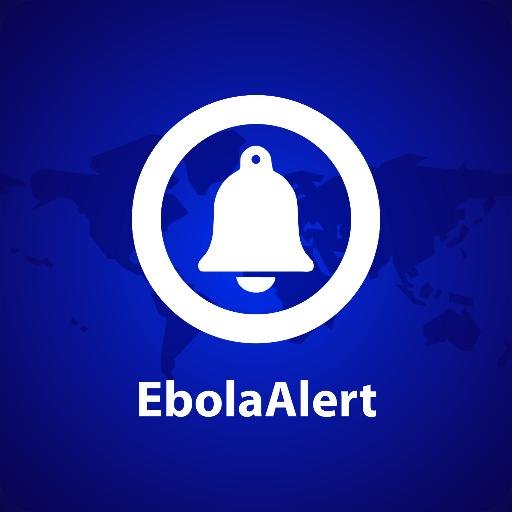
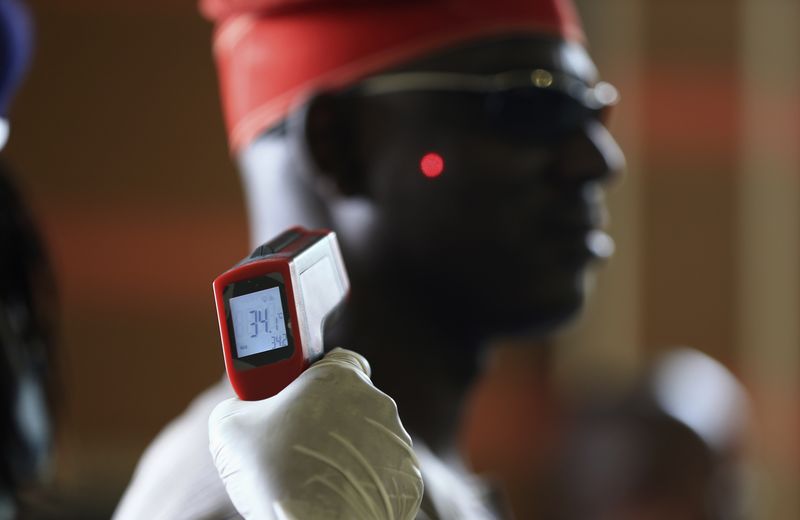
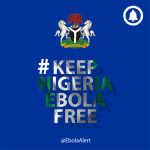


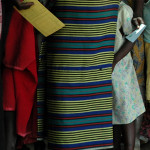
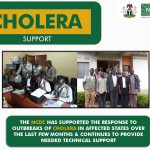






July 19, 2015 at 8:22 pm
I just like the valuable information you provide on your articles.
I’ll bookmark your weblog and test again here frequently.
I am relatively certain I’ll be informed many new stuff proper right here!
Good luck for the following!
July 26, 2015 at 7:45 pm
magnificent post, very informative. I ponder why the opposite experts of this sector do not understand this.
You should continue your writing. I’m sure, you’ve a great readers’ base already!
July 27, 2015 at 6:58 pm
Hi, after reading this remarkable piece of
writing i am as well happy to share my experience here with colleagues.
July 28, 2015 at 7:00 pm
Thanks for sharing your info. I really appreciate your efforts and I
am waiting for your further post thanks once again.
July 29, 2015 at 2:49 pm
Heya i’m for the first time here. I came across this board and I to find It truly useful & it helped me
out a lot. I’m hoping to provide something back and aid others like you helped me.
July 30, 2015 at 6:58 pm
Generally I don’t read article on blogs, however I wish to say that this write-up very pressured me
to try and do so! Your writing taste has been surprised me.
Thank you, quite nice article.